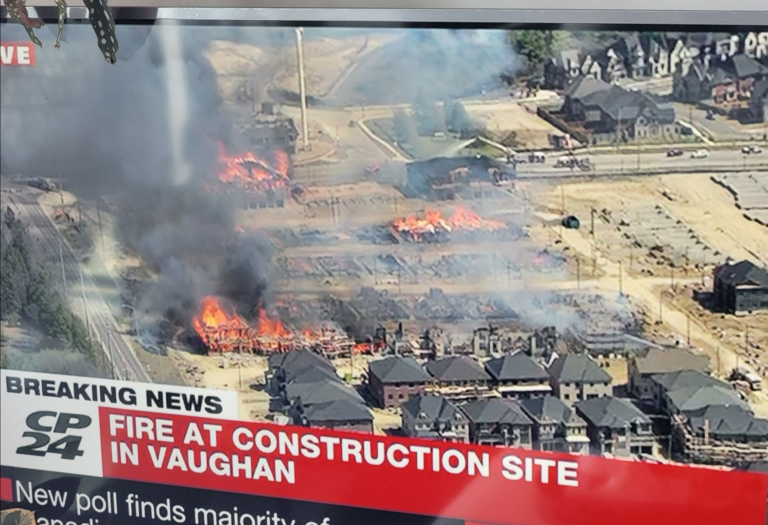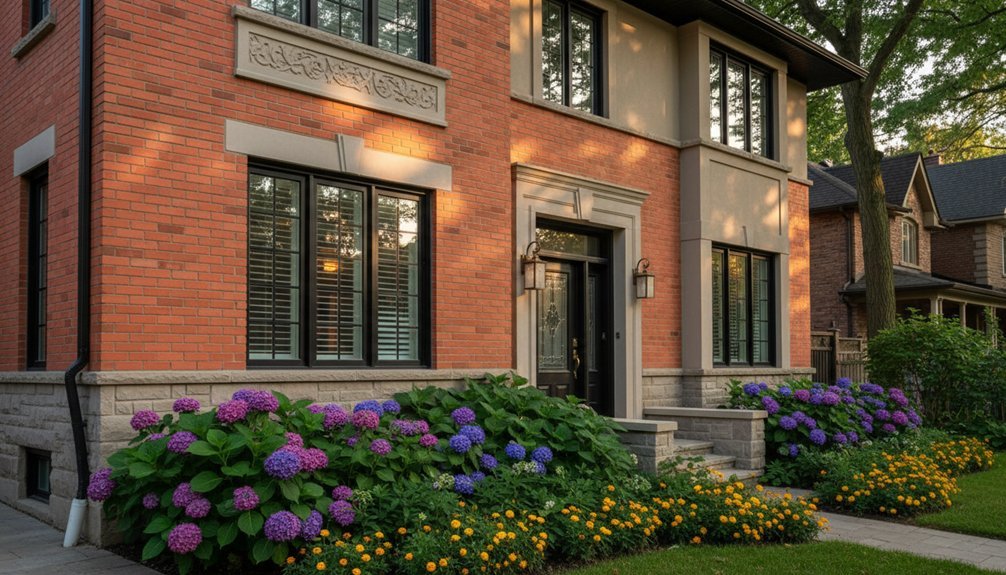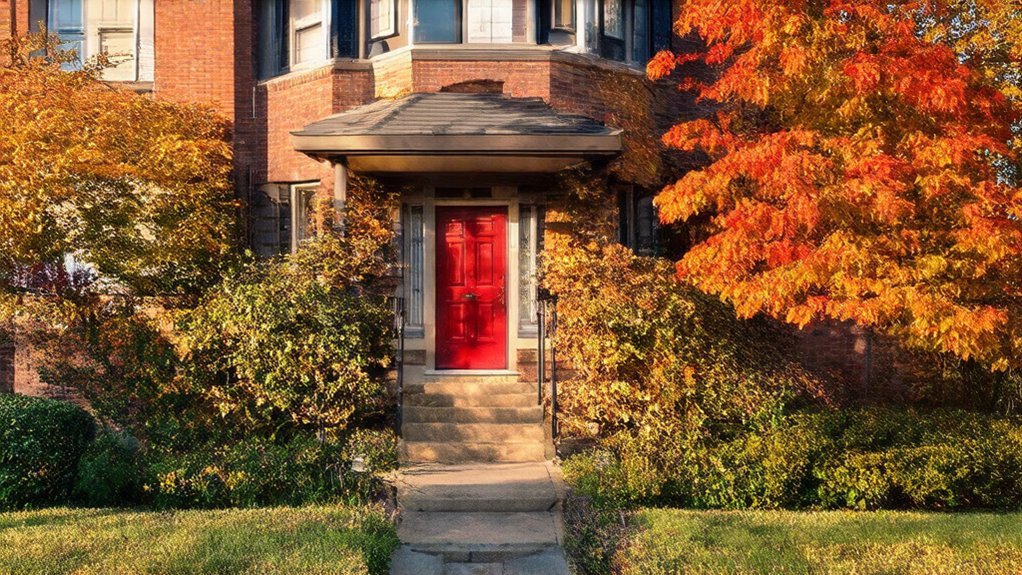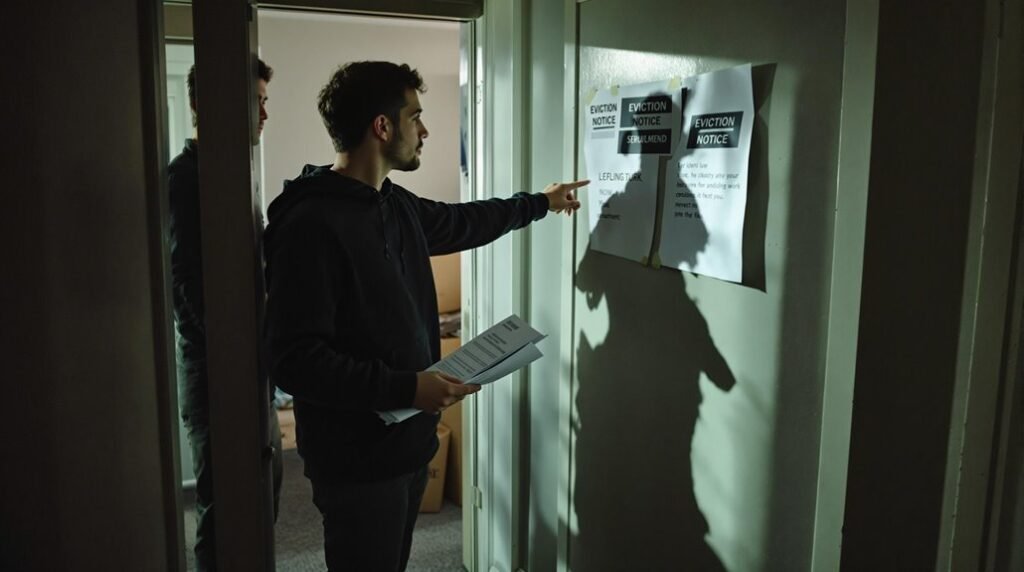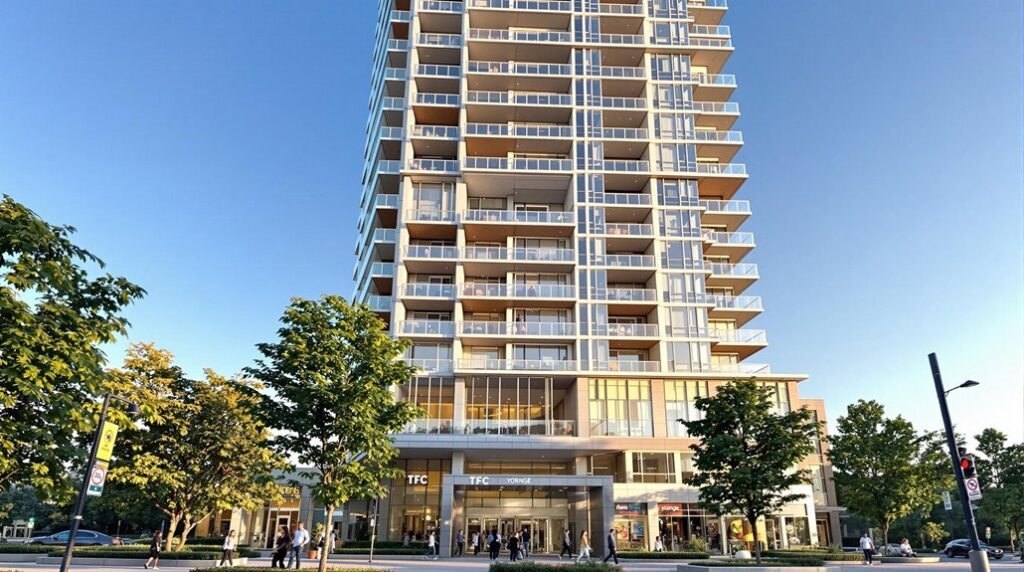Toronto’s new rooming house policy requires landlords to register properties with four or more rooms sharing facilities. You’ll need to comply with safety standards and pay for annual inspections. Tenants benefit from improved safety, but may face displacement if landlords can’t afford compliance. As a landlord, weigh compliance costs against rental income and consider necessary retrofits. The city’s currently taking an educational approach, so it’s a good time to self-report and voluntarily register. Assess your property’s economic viability under these new regulations and consider seeking professional advice. Stay informed about market trends to navigate these changes effectively. Exploring further can help you make informed decisions in this evolving landscape.
Key Takeaways
- Landlords must register properties with four or more rooms sharing facilities as rooming houses and pay annual fees.
- Compliance costs include potential property retrofits and regular safety inspections to meet building and fire codes.
- Tenants benefit from improved safety standards, but risk displacement if landlords can’t afford compliance.
- Self-reporting and voluntary registration are encouraged during the current educational phase of enforcement.
- Operators should assess economic viability, consider compliance costs, and seek professional advice to navigate new regulations effectively.
Understanding Toronto’s Rooming House Policy
Toronto’s new rooming house policy, introduced in March 2024, has three key components you need to know. First, landlords leasing properties by the room must now register their units. The policy defines a rooming house as four or more rooms sharing a kitchen and bathroom under one dwelling. However, renting to students under one lease doesn’t classify as a rooming house.
Second, rooming house operators must register annually, paying $150 for building and fire code inspections, plus $25 per room. This guarantees increased safety for shared accommodations through regular inspections.
Lastly, the policy may impact affordable housing availability. Many non-compliant properties might be removed from the market, and operators may need to retrofit properties to meet codes. Some may choose not to comply due to costs or property conditions, potentially reducing affordable accommodations in Toronto.
Impacts on Landlords and Tenants
This new policy doesn’t just affect housing availability; it’s also going to have significant impacts on both landlords and tenants in Toronto. If you’re a landlord, you’ll need to weigh the costs of compliance against your rental income. You might face expenses for property retrofits and annual inspections. Non-compliance could lead to penalties, though these aren’t yet defined. For tenants, you could see improved safety standards in registered rooming houses. However, you might also face the risk of displacement if your landlord decides to convert the property or can’t afford to comply. The policy’s enforcement is still in an educational phase, giving you time to adapt. Whether you’re a landlord or tenant, it’s vital to understand your rights and responsibilities under this new system. Consider seeking professional advice to navigate these changes effectively.
Enforcement and Compliance Strategies
Three key strategies are emerging for enforcing and guaranteeing compliance with Toronto’s new rooming house policy. First, self-reporting is encouraged, giving you the opportunity to voluntarily register your property. Second, the city is taking an educational approach, focusing on informing landlords about the new requirements rather than imposing immediate penalties. Third, annual inspections will be conducted to secure ongoing compliance with building and fire codes.
To navigate these strategies, you should assess your property’s current status and the costs of compliance. If you’re operating a rooming house, consider registering early to avoid potential future penalties. Evaluate whether retrofitting your property is financially viable or if converting to a different rental model might be more prudent. Remember, while enforcement is currently lenient, it’s wise to prepare for stricter measures in the future.
Future Outlook for Operators
As a rooming house operator in Toronto, you’ll need to carefully consider your long-term strategy in light of the new policy. Assess the economic viability of your property under these new regulations. You’ll have to weigh the costs of compliance against your current rental yields. If the expenses are too high, you might need to explore alternative options.
Consider converting your property to a single-family rental or another use if compliance costs are prohibitive. This may involve tenant relocations, so plan accordingly. Stay informed about market trends and be prepared to adapt quickly. Don’t hesitate to seek professional advice from real estate experts or legal professionals. They can provide valuable insights into navigating these changes.
Navigating Challenges and Changes
Rooming house operators face a minefield of challenges in adapting to Toronto’s new policy. You’ll need to navigate increased regulations, potential compliance issues, and the risk of neighbor complaints. If you’re struggling, selling your property might become necessary. To tackle these challenges, it’s essential to plan strategically and make informed decisions. Start by evaluating your property’s viability under the new regulations and consider seeking professional advice. Stay informed about market trends and be prepared to adapt quickly. Evaluate your options carefully, whether it’s retrofitting your property, converting to single-family rentals, or exploring other alternatives. Remember, being proactive is key to minimizing risks and avoiding potential penalties. By understanding your rights and responsibilities, you’ll be better equipped to navigate the changing landscape of Toronto’s rooming house market.



